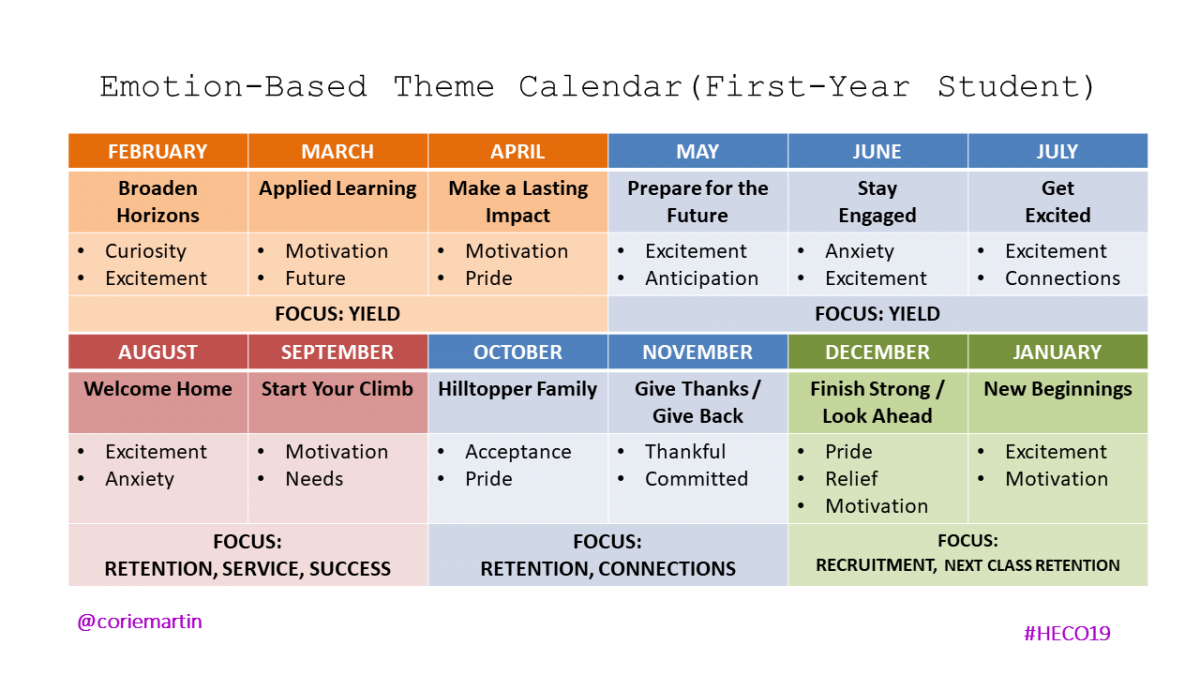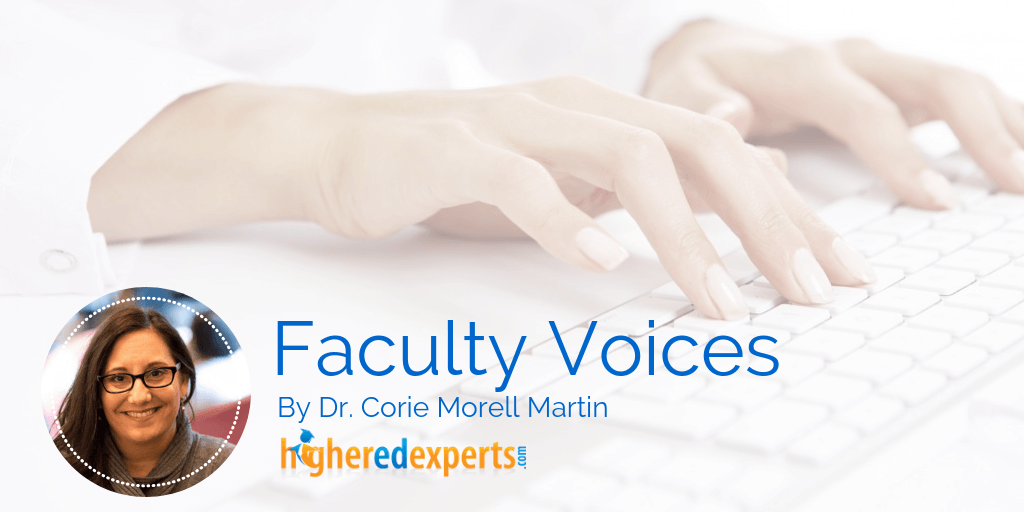Higher Ed story time for (emotional) humans and (search) bots alike
Ah, the testimonial!
The tried-and-true method of storytelling that while seemingly tired, remains one of the most effective ways to share the student experience with your audiences.
Storytelling in higher education is not a new concept, but sometimes our formula for telling stories can become predictable, and perhaps not as click-worthy as we would like. Engagement numbers don’t lie. If we are going to spend the time to find the student and create the story, it should be a story worth reading, liking and sharing.
To give your stories a little oomph, try framing them in the context of the emotions they should evoke from your audience.
When you are interviewing your students, ask questions that get to their “why”, and keep digging. You will find a gold mine of emotion there, even when you least expect it.
Whether you are writing a blog post that will be shared on social media, or a quick tweet, writing for the Web takes much more care than academic or casual writing — if you want to hit strategic points.
 So, remember to create your headlines and copy with search engine optimization in mind!
So, remember to create your headlines and copy with search engine optimization in mind!
- What keywords would someone search that could help your story appear in search?
- What action words could you use that would entice and excite your reader?
- And of course, what emotion(s) are you trying to evoke?
To make sure the focus of our higher ed writers stays on these emotions, my team uses a theme-based content strategy also aligned with what the average prospective college student feels during the various recruitment cycle stages.
We rely on the following emotional-based calendar for all our content, a calendar I presented at the Higher Ed Content Conference.

When I completed the Social Media and Web Writing for Higher Ed course that I now teach (walking in the student shoes is part of Higher Ed Experts training for its instructors), I reworked the headlines and copy of some stories we produced for social media at my school.
How to rewrite a higher ed story headline for SEO and emotions
In the example I’m sharing below, I’m going to walk you through the process I used to rewrite one of these story headlines (published on Instagram in this case) to make it work better with students and search engines. Follow me!
Recruitment Phase: Choice (April)
Original Headline/Opener:
“Deven Richardson, a senior from Bowling Green graduating this weekend, had a robust and rewarding experience while at WKU.”
What does this sentence tell us about what we are about to read?
The story must be about a graduating senior from Bowling Green, Kentucky. However, a “robust and rewarding experience” does not tell us the significance or activities that led to his success. It’s really not enough to pull the reader in and entice them to read more.
To provide some context, this student faced adversity during childhood. He was a first-generation college student who went on to study abroad and earned several prestigious awards, scholarships and grants, including a post-graduate internship with the United States Congress. This student’s story was intended to serve as inspiration to others facing similar challenges. Our goal was also to highlight the opportunities available to all WKU students.
Great story, right?
Challenging headline.
Some keywords we could have used to enhance the search-friendliness of this story could have been:
- WKU
- Student grants
- First-generation college student
- Study abroad
- College success
Some action words we could have used to entice the reader could have been:
- Lead
- Inspire
- Achievement
- Challenge
- Perseverance
Now let’s think about emotion.
Refer back to the audience and timing of our recruitment cycle. If a first-generation student is looking for colleges, a support network both on and off campus might be important to them. While opportunities sound exciting, they might not seem attainable. This story should send the message that at WKU there are organizations and individuals that exist to help you, the incoming student, succeed while in college.
On the emotional front, the student will feel a mix of fear, anxiety and relief
For additional context, you should know that WKU is located on a large hill. Thus, we are known as the “Hilltoppers” and use many “climbing” metaphors in our content.
So let’s try that headline again, shall we?
Climbing to the Top: Bowling Green student first in his family to graduate college inspires with great achievements
Better:
Determined first-generation student awarded scholarships and national acclaim through inspiring global research
Best:
From the Hill to Capitol Hill: Graduating senior heads to internship with the U.S. Congress after becoming the first in his family to complete college
See? It works! I’d click on that.
At the time this piece was published, it was intended to serve as a student profile in our “People of WKU” graduation series, so it was written specifically about the student to tell his story.
This story was very popular with a lot of engagement, partially because of the popularity of the student, who was nominated for the feature.
This particular piece was an Instagram feature, so it was short and simple. We also used the student’s own words. If we were to expand this as a news piece, we could share a bigger and better, more emotional and more compelling story that might have better touched students and addressed issues that were more important to them – which is the goal after all.
Can YOU come up with some of your own headlines?
What would you have written?
Meet the Faculty: Dr. Corie Morell Martin
Higher Ed Experts is a professional online school for digital professionals working in universities and colleges.
When you take a professional certificate course with us, you get a chance to upgrade your skills by working on your projects, interacting with classmates just like you and getting detailed personalized feedback from your instructor.
 A professional writer and communicator, Dr. Corie Morell Martin has served as the Director of Web Services and Digital Marketing for Western Kentucky University since 2008. Her career spans more than two decades in journalism, advertising, media relations, web services and marketing.
A professional writer and communicator, Dr. Corie Morell Martin has served as the Director of Web Services and Digital Marketing for Western Kentucky University since 2008. Her career spans more than two decades in journalism, advertising, media relations, web services and marketing.
She is a professor of social media and advanced marketing for the Department of Marketing and the MBA Program at the WKU Gordon Ford College of Business. She holds a BA in Communication, an MA in Organizational Management, and an Ed.D. in Postsecondary Educational Leadership.
Dr Corie co-teaches with Sofia Tokar Higher Ed Expert’s 4-week online course on Web Writing for Higher Education, a course both also completed.
Tags: Dr Corie, Higher Ed Experts Faculty, Higher Ed News